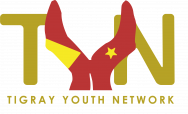Genocide in Tigray: A Fact-Based Contribution Toward Justice and Accountability
Featured Article

VIEWPOINT
Viewpoint - A commentary on the New Lines Institute report - 26 August, 2024
At this point in Tigray’s history, it is, perhaps, particularly worth noting that the publication of the report confirming the commission of genocide must, by its very nature, actually be considered a positive development. And while its findings have not been in the least surprising to those familiar with Tigray’s plight and the sociopolitical dynamics that led up to the war, many will certainly be relieved to finally see an organisation with an international reach using unequivocal language to draw attention to the scale of the atrocities committed.
Indeed, carefully researched, well documented facts – including, for instance, regarding the role of the Ethiopian government and its Eritrean and Amhara accomplices – combined with a thoroughly outlined argument as to why what took place in Tigray must be considered a violation of the Convention on the Prevention and Punishment of the Crime of Genocide, is nothing less than a demand, an urgent call, for international action.
From a pragmatic and historic point of view, the report undoubtedly serves the cause of Tigray, its allies, and ultimately society as a whole. Its fact-based tone and well laid-out conclusion stand out by their sheer unambiguity and by the simple fact that, since war broke out almost four years ago, there has been no similar effort by any Western or international organisation of any kind. On the contrary; inaccurate characterisations and misguided attempts to create moral equivalence where none has existed, for the sake of ‘neutrality’, have been the norm in the reporting of the Tigray war and its consequences.
In this context, it is also worthwhile to make a wider point and observe that, when an unspeakable tragedy of that scale occurs, no matter where in the world – in order to heal, reconstitute and rebuild, and, crucially, politically implement the lessons, to prevent a repetition of history – enough from within society must necessarily be willing to confront these dark chapters, so that a dynamic conducive for justice in the courts, unity of purpose, and a new sense of self-perception, can develop from within.
In this regard, too, the New Lines Institute’s contribution cannot only be considered – as it were – a ‘step in the right direction’, that is, toward accountability, the precondition for societal healing and reconstruction, but also a powerful and lasting vindication for those who had understood all along that what took place in Tigray must be characterised as genocide.
The publication of the report has certainly provided a glimmer of hope and a morale boost for Tigray’s wounded society and its depressed allies. And yet, this battle never ends. It falls to us – the lovers of society, self-determination and stability – to continue working, educating and analysing, as we fight for accountability, for political, cultural and institutional reconstruction and strengthening and for a realistic telling – and retelling – of Tigray’s and indeed Ethiopia’s – story.
– Weleteselassie Asmelash, TYN member
